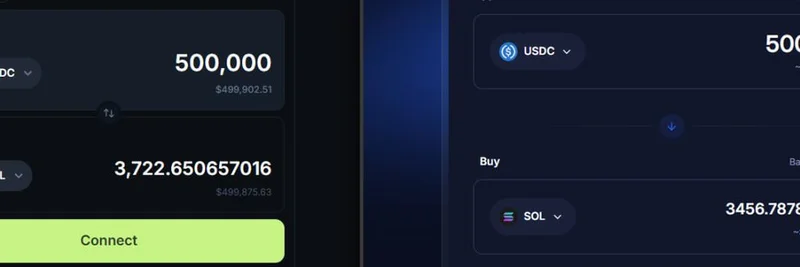Ever feel like sending crypto across chains is a hassle wrapped in a privacy nightmare? You're not alone. In a recent thread on X, crypto heavyweight Eric Wall (@ercwl) broke down a game-changing feature in the Zcash ecosystem that's got us rethinking how we move money in web3. We're talking Near Intents in the Zashi wallet—a slick tool that lets you pay for anything in any coin to any address on any blockchain, all while keeping your transactions shielded and simple.
If you're knee-deep in meme tokens like $PEPE or $DOGE, where fast, anonymous flips can make or break a trade, this hits different. No more fumbling with bridges that leak your wallet history or expose your stack to chain analysis firms. Let's unpack Wall's thread and why it's a big deal for blockchain degens and privacy purists alike.
The Magic of Near Intents: Privacy Meets Convenience
Wall kicks off by admitting he initially missed the point of Near Intents. Picture this: You're chilling in the Zashi app (Zcash's mobile wallet, built for seamless shielded transactions). You want to tip a creator in ETH, buy a meme NFT on Solana, or even grab some $SHIB on Ethereum—all from your private ZEC stash. Instead of wrestling with multi-chain swaps yourself, the app handles a quick shielded-to-shielded (z2z) zap on Zcash. Then, boom: A backend service (think relayer or intent solver) executes the actual cross-chain move for you.
It's like having a stealthy butler for your crypto. Your ZEC stays hidden behind Zcash's zk-SNARKs—those zero-knowledge proofs that prove you're legit without spilling your balance or history. No on-chain breadcrumbs linking your payments back to you. Wall calls it out: "Someone else makes the transaction on the other chain for you." Simple as that.
But Wall's not sugarcoating it. Privacy isn't bulletproof yet—unshielded returns or change can leak info, as sleuth ZachXBT once demoed. Upgrades are inbound, though, and Wall's optimistic. He even jokes about being "zidelined" (Zcash sidelined?) after a $2.54 demo payment, courtesy of Zcash founder Zooko.
Why This Screams 'Killer App' for Meme Token Traders
Here's where it gets juicy for us at Meme Insider. Meme coins thrive on hype, virality, and quick liquidity—but they're also a surveillance state's dream. Every swap on DEXs like Uniswap or Raydium leaves a trail. Near Intents? They could flip the script.
Imagine dumping into a fresh $CAT pump on Base without anyone tracing it to your main ZEC vault. Or, pair it with a shielded stablecoin (Wall's top pick for the real MVP), and you've got dollar-pegged privacy for yield farming memes without the KYC creep. It's non-custodial, no federations needed—just pure, intent-based execution.
Wall clarifies the use case crystal clear: "You're literally spending crypto money all over the place, but there’s no one who can look up your shielded ZEC balance... nor link the payments together." Off-chain caveats apply (Zashi might log via API, Tor's optional), so don't YOLO your life savings yet. But for everyday meme plays? Gold.
Bringing It Home: Bitcoin Dreams and Beyond
Wall doesn't stop at Zcash—he's got Bitcoin envy. "I want to bring this to Bitcoin," he says. Ditch Lightning's channel headaches, liquidity woes, and routing fails. No CoinJoin mixers for basic privacy. Just scalable L2 payments with a humble opcode tweak. For meme communities building on BTC (hello, Ordinals and Runes), this could mean frictionless, private drips to creators or airdrops without the drama.
Shoutout to Udi Wertheimer for the flag, and Zooko for the walkthrough. Zashi's app is live now—grab it on iOS or Android and test a micro-send. It's not perfect, but it's a peek at crypto's privacy future.
In the wild world of memes and tokens, tools like Near Intents remind us: Innovation isn't just about moonshots; it's about making the boring stuff (like payments) actually usable and untraceable. What's your take—ready to shield up your meme portfolio? Drop thoughts below, and stay tuned to Meme Insider for more on the tokens shaking up blockchain.
Follow us on X @MemeInsider for real-time meme token alpha.



